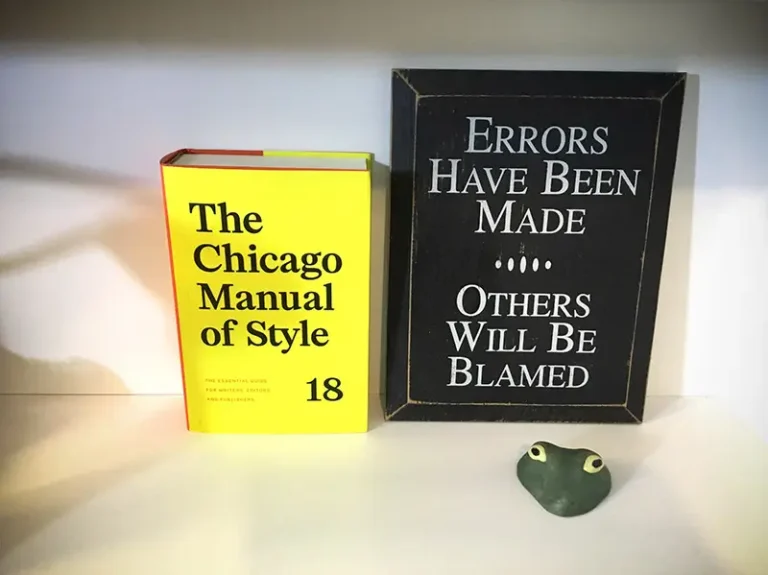Writer’s Block? Let’s Get Unstuck
Guest post by Christian Nelson
Copyeditor, Writer, and Designer
Sometimes writing is easy. The sun shines through your window like bright happy music. Your energy level is high. Your mind overflows with ideas, and those ideas leap from your fingertips directly to the keyboard. Your fingers bounce and fly across the keyboard. In what seems like mere minutes, a thousand words or more appear on your computer screen, and it’s all great stuff. Happy times.
But what about those other days? Even though the sun is shining, your mind is dark and empty. No music. Just echoes of things you can’t quite hear. Ideas? There are none. Long minutes or even hours go by with nothing more than a few-halfhearted clicks on the keyboard. Your computer screen remains blank. The cursor mocks you with its constant blinking.
In the days before computers and word processing machines, there would be no screen. The big, black typewriter (or maybe even a small, green portable) would represent an immovable object keeping you from writing – but there would be no irresistible force to push that object out of the way. The wastebasket would fill up with the crumpled remains of rejected beginnings.
What to do?
Luckily for me, I’ve never had much trouble with writer’s block. Maybe that’s because I don’t write books. OK, I wrote one book, but never again. I mostly write shorter pieces – magazine articles, blog posts, text for brochures and websites – things like that. And I write for money. (More on that later.)
But many of the writers I’ve worked with run into blocks on a regular basis, and it’s a real problem – so I’ve decided to write up a short list of my favorite ways to push through writer’s block. It’s easy to find long lists of ideas online, but you don’t get many (if any) reasons why those ideas might work. My list is different. It’s a short list, but I’m going to include reasons why I think the idea will work for lots of writers and might mention when a particular idea has worked for me in real life. Here goes:
Take a shower. This is sort of like when someone says, “Go soak your head,” when they are tired of dealing with you. Standing in the shower for several minutes seems to have three effects on me.
1. It gets me into a relaxed state where I am open to new thoughts.
2. The water drops bouncing on top of my head sometimes bring new writing ideas. Brilliant phrases and interesting words come to mind, and I can barely wait to jump out of the shower and start writing down the fast-flowing ideas.
3. If I use soap and/or shampoo, I get cleaner than I was before I got into the shower.
Variants of this method: Go for a drive. Lie down and stare at the ceiling. Go for a walk.
Phone a friend. Calling a friend might seem like a bad idea if you are trying to get in the mood to write something. But everyone seems to have at least one friend who talks and talks and almost never listens. That’s the friend I’m talking about. In my experience, these people usually call me. I rarely call them. But it will be a pleasant surprise for that friend if you make the call, and almost immediately they will launch into some long, involved story about something that happened to the cousin of a friend of a friend – and you can just sit there and “listen” without paying much attention to what they’re saying. Just listen to the words. The cadence. The accented syllables. Mumble a few “Hmmmms” and “Wows” every few minutes and soak it all in. When you’ve had enough (it will take at least twenty minutes), cut the call short with some excuse, and in a few minutes, you might find that your writer’s mind is open for business again. Maybe it’s the feeling of relief that the call is finished that makes this work.
Read something. But not just anything. Read something similar to what you are hoping to write. If you work as a copywriter, and you have to write something about your client’s new AI-powered buzzsaw, find some sales text for some other slightly similar machine and read it. Find another one and read it. Supposed to write your weekly column for the magazine, but are stuck? Same thing. The idea is not to copy what someone else has written. The idea is to get your writer’s mind running in the same pattern as the text you just read. Great sales copy has to be alive on the page. It can’t just lay there. And reading something similar to what you need to write will get your brain cells properly aligned so you can get things moving.
Find some text and start typing it out. Not only can this text be different from the kind of text mentioned above, but it should be different. And it helps if the text is a bit mindless. Nothing that’s going to take your attention away from your typing. Just type. Don’t think about what you’re typing. Get the keyboard humming. Don’t try to write. Just type. We know there’s a live connection between the brain and the fingertips. Some kind of energy flows from the brain to the fingertips. Mindless typing (the faster the better) can cause energy to flow in the opposite direction too – from fingertips to brain. That has worked for me more than once.
Pay homage to the C Prompt ( c:\_ ) If you’ve been around long enough (quite a long time really) you might remember the c\ prompt blinking in white over a jet black background or maybe blinking in green. That was the C Prompt (also known as the Command Prompt), and on an MS-DOS computer, you would have a hard time starting anything without addressing the C Prompt. Fortunately, no one has to worry about that anymore. Instead there is a new prompt that can help you get started writing if you don’t have even one single idea of what to write about. It’s called a writing prompt. The first time I encountered a writing prompt was at a writing contest at a local college. Everyone was supposed to write a short story within a two-hour time limit, and the moderator started things rolling by reading a writing prompt out loud to the group – and the short story had to start with the idea of the prompt, which was “The telescope in the junkyard.” That created an interesting image in my mind, but I wasn’t interested in the contest, so I just wrote a short story about something else. But that’s OK. Writing prompts are a good idea if you want to write something but are completely stuck. You can find writing prompts all around the Internet, and here are two I found within a few minutes: “You find strange, muddy footprints leading up to your front door.” And, “Does Facebook need a ‘Dislike’ button?” Next time you’re stuck, give it a try.
Write about something you remember from your childhood home. This worked for me one time when I was totally blocked. This was in the early days of the Internet (over thirty years ago), and a friend of mine had written a book about some amazing new publishing program – and she was sending a review copy to an influential technology writer and needed two more blurbs to go with the book. The blurb had to be 800 to 1,000 words, and it had to be good. It had to be really good. She already had several blurbs, but just needed one more – and she asked me to write it. I think I had just over an hour until the deadline. I was brain dead. I just could not get started. Sitting there with my original Macintosh SE computer, the cute one with the 9-inch screen, I couldn’t think of a single thing to write. Nothing. Then, a stroke of good luck. I picked up an old writers magazine from my desk, and there was an article about writer’s block – and one suggestion for beating the block was to think of something that was in my house when I was a child and write about it. Within a few seconds, I started thinking about an old oil painting that had hung on the wall over our living room sofa. An elegant woman was sitting at an old-style piano. The scene was blurry and dreamlike and maybe was something like a French impressionistic scene. I decided to spend ten minutes writing about the painting as a last resort before I would give up on writing the blurb and disappoint my friend. But writing about the painting came easy, and it made me think of how I used to imagine that the woman at the piano was my mother, and words started flowing. Next thing you know, my mind was totally engaged, and the blurb was finished. In time. But at the very last minute, a blurb from a very well-known figure from Apple sent in a blurb for my friend’s book, and they decided to use his blurb and not mine. The book became a huge success, but I was sorry I was not a part of that.
You can do it
Some people say that if you suffer writer’s block very often, you’re not much a writer. I don’t agree with that, but I do know that if you want to be a professional writer (especially as a copywriter), you can’t afford to sit around waiting for inspiration. The muse is a mythical creature, and I never waste time waiting for “my muse” to show up. Just don’t need it. Because I write for pay, and if I don’t come through with something good and on time, they won’t call me next time they need some brilliant writers. There are lots of great copywriters out there, and clients aren’t hard to find – so I just get to it.
When I have to write something for a client, even if it’s for a product or a service I don’t really care about, I think about it for a while, and then I start writing. Doesn’t matter if I’m in the mood or not in the mood. Doesn’t matter if I’m not feeling good that day. What matters is that I have a job to do, and that I know I can do it if I just start writing.
So that’s what I do. No waiting for “the right mood.” No waiting for inspiration. I just start writing.
Being able to write great stuff without waiting for inspiration is one of the main differences between a professional and an amateur.
So get with it. It’s the key to success. Put your mind to it, and you can do it too.


